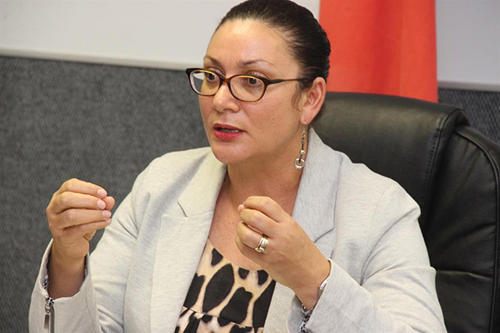Aletta Shikololo
In 2020, Cabinet directed the ministry of education to introduce KiSwahili into the Namibian school curriculum. However, there has been no progress made in the implementation of this plan to date.
Plans to introduce KiSwahili in local schools heightened after former Tanzanian President John Magufuli’s proposal to the Namibian government in May 2019, saying this could help remove barriers to trade between the two countries.
Swahili, also known by its native name KiSwahili, is a Bantu language and the native language of the Swahili people, and could be the first African language from outside Namibia to be taught in local schools.
The enrolment of Africa’s most internationally recognised language in local classrooms was planned to commence last year. However, no memorandum of understanding between the relevant parties has been signed yet.
Speaking to New Era, the ministry’s executive director Sanet Steenkamp said they have submitted their input to the high commission of Tanzania, but there has still been no response.
“There is no progress at the moment because we are still waiting for a response from the high commission. So, at this stage, we are focusing on issues that are pertinent now within the country related to Covid-19,” she stressed.
The decision to introduce the language has, however, been received with mixed feelings, with some opposing the idea.
Opposition parties and stakeholders in the education sector raised their concerns over Cabinet’s decision to explore introducing the language, with many saying it could be in vain, while some urged the government to stop the pursuit of KiSwahili and rather focus on integrating learners to speak different Namibian languages.
The Popular Democratic Movement (PDM) was one of the opposition parties which rejected the plans, saying there are more important pressing matters that confront the Namibian basic education system.
“It is hypocritical and unpatriotic as Namibians to introduce other African languages while we, Namibians, have not even mastered our own indigenous languages. Most Namibians can only speak their own indigenous languages and English and Afrikaans,” PDM Youth League spokesperson Maximilliant Katjimune once told this publication.
South Africa is among six other SADC countries that have introduced KiSwahili in schools.
According to the East African Journal of Sciences, KiSwahili is the continent’s most spoken African language with between 100 and 200 million speakers stretching from Mozambique, the Comoros Islands, northern Zambia and Malawi in southern Africa, to Rwanda, Burundi and the Democratic Republic of Congo, South Sudan and southern Somalia, as well as small pockets in Uganda’s urban areas.
In 2017, Rwanda’s parliament approved KiSwahili as an official language, and it is used along with French and English. - ashikololo@nepc.com.na


